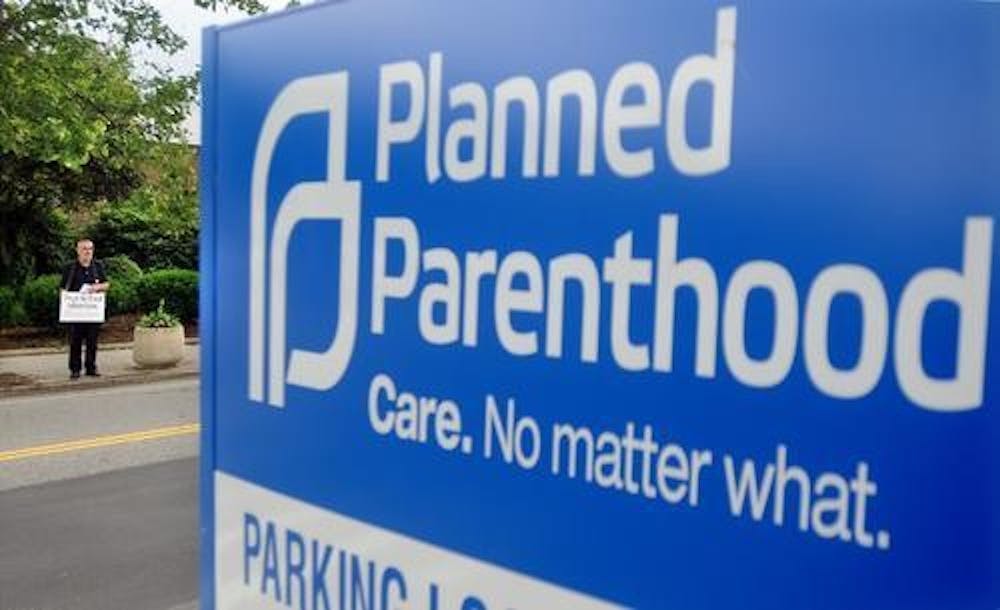Gov. Eric Holcomb issued an executive order March 30 requiring that locations such abortion clinics, health care facilities and providers cancel or postpone all elective or nonessential surgical and invasive procedures while the COVID-19 pandemic rages. Some abortion-rights activists are concerned.
The order, which mentions abortion clinics specifically, doesn’t state whether the procedure is considered essential or if it's elective. A surgery or procedure is defined as elective if it can be postponed without problems to the patient's health, with discretion being left to the medical provider. Delaying elective and non-essential procedures is meant to preserve personal protective equipment for COVID-19 and essential procedures. Personal protective equipment includes gloves, masks and eye protection.
Holcomb’s office did not respond to requests for comment.
“We are in a pandemic, and people need to remember that,” public health professorLucia Guerra-Reyes said. “But I am completely against the idea that abortion care is not essential.”
Abortion isn’t a choice made without considering other factors , Guerra-Reyes said. Pregnancy exaggerates inequalities such as lack of access to medical care, money or information about sexual health.
“Nobody wants to have an abortion,” she said. “Getting an abortion is damn hard.”
Ed Gentry, the Bloomington Planned Parenthood clinic volunteer escort coordinator, said he sees abortion as a vital health care procedure.
Gentry received a message from Planned Parenthood on March 18 telling him to suspend all volunteer activities. For him, that meant he and his volunteers couldn’t continue to escort women inside the clinic. He said there have been situations in the past where women would come to the clinic, see protesters outside and not be able to go in.
“My concern in not being there as an escort is that patients are going to get intimidated or scared,” he said.
Virginia Vitzthum, a senior scientist for the Kinsey Institute for Research in Sex, Gender and Reproduction, said abortion isn't included in the exceptions to the executive order. The telemedicine reprieve that allows practitioners to see patients online doesn’t extend to those providing abortions, so patients seeking abortions must visit doctors in person.
If women seek abortions during this pandemic in Indiana, they are still required to follow procedures set by state law: visit the doctor in person, hear the fetus’s heartbeat and see it move via an ultrasound, and wait a day between the first visit and the procedure before undergoing the procedure.
The multiple visits, finding somewhere to stay for women who travel to less restrictive states and the cost of the procedure quickly add up and bar many women from accessing that care, Vitzthum said. Though costs vary depending on health insurance and the procedure performed, the Guttmacher Institute, a sexual and reproductive health research and policy organization that supports abortion rights, lists the average cost of an early medication abortion as about $500. Some women have always had a harder time accessing abortions, such as people of color and women with low income.
“People of means could always get a safe abortion,” she said.
Vitzthum said she’s also frustrated because there are multiple ways the state government can ease restrictions to make abortions more accessible during the pandemic. Removing the requirement for in-person visits and multiple visits would help. She also said government officials need to realize abortion is a time-sensitive procedure.
Vitzthum said pregnancy can also be life-endangering. Some women can’t safely carry a pregnancy and need to terminate it. Victims of domestic abuse are more at risk when they’re pregnant.
The type of abortion and medical care a person can get depends on how far along the pregnancy is, Vitzthum said, and waiting even a couple of weeks can change the procedure from a pill to surgery.
“They are faced with unreasonable choices between their current family, their current living situation, their plans for their future, their current health and what the regulations are,” she said.




